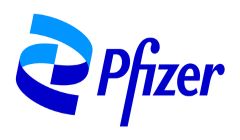Pfizer calls upon global health leaders and organizations to join the Accord, bringing their expertise and resources to close the health equity gap

Pfizer launched ‘An Accord for a Healthier World.’ This groundbreaking initiative aims to provide all of Pfizer’s patented, high-quality medicines and vaccines available in the U.S. or the European Union on a not-for-profit basis to 1.2 billion people in 45 lower-income countries. The Accord seeks to greatly reduce the health inequities that exist between many lower-income countries and the rest of the world.
“As we learned in the global Covid-19 vaccine rollout, supply is only the first step to helping patients. We will work closely with global health leaders to make improvements in diagnosis, education, infrastructure, storage and more. Only when all the obstacles are overcome can we end healthcare inequities and deliver for all patients,” said Pfizer Chairman and Chief Executive Officer Albert Bourla.
The Accord countries include all 27 low-income countries as well as 18 lower-middle-income countries that have transitioned from low to lower-middle-income classification in the last ten years. Pfizer will work with healthcare officials in Rwanda, Ghana, Malawi, Senegal and Uganda to identify early insights and opportunities to ensure all medicines and vaccines can reach those in need. This will include expertise to support diagnosis, healthcare professional education and training along with supply chain management and other infrastructure enhancements. Learnings from these five countries will be applied to support the rollout for the remaining forty countries.
Pfizer will also collaborate with Accord participants to identify quick and efficient regulatory pathways and procurement processes to reduce the longer amount of time it can take to make new medicines and vaccines available in these countries.
Under the Accord, Pfizer has committed to provide 23 medicines and vaccines that treat infectious diseases, certain cancers, and rare and inflammatory diseases. Making these medicines and vaccines more readily available has the potential to treat non-communicable and infectious diseases that claim the lives of nearly one million people each year in these countries and chronic diseases that significantly impact quality of life for at least half a million more1. As Pfizer launches new medicines and vaccines, those products will also be included in the Accord portfolio on a not-for-profit basis.
The Accord also aims to establish faster access to Pfizer’s future pipeline medicines and vaccines on a not-for-profit-basis to the 45 countries, particularly those that treat diseases that disproportionately impact global health. To further this commitment, Pfizer, with funding from the Bill & Melinda Gates Foundation, is advancing work on the development of vaccine candidates for the prevention of Group B Streptococcus (GBS), which is a leading cause of stillbirth and newborn mortality in low-income countries. They are also discussing opportunities to support Respiratory Syncytial Virus (RSV) vaccine development, another maternal vaccine.
“Everyone, no matter where they live, should have the same access to innovative, life-saving drugs and vaccines,” said Bill Gates, Co-Chair of the Bill & Melinda Gates Foundation. “The Accord for a Healthier World could help millions more people in low-income countries get the tools they need to live a healthy life. Pfizer is setting an example for other companies to follow.”

Subscribe To Our Newsletter & Stay Updated